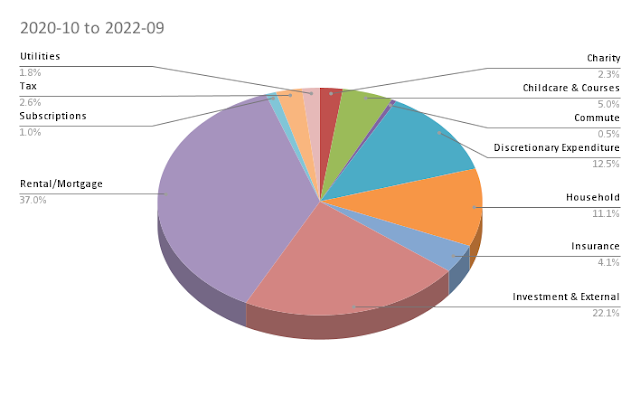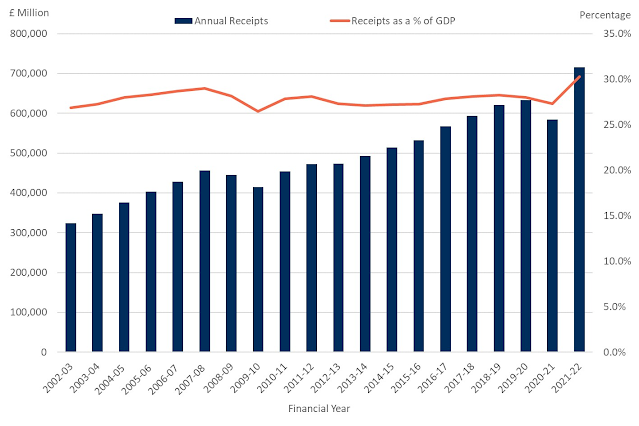How do I make sense of my financial health?
I have been investing for a long time. I have also been living in multiple countries since I started investing. The result is that I have a large collection of bank accounts and brokerages and investments of all stripes. I try to consolidate them as much as I can, but I am still left with too many things that can’t necessarily be consolidated much further.
Here is where all my investments are split across:
PPF accounts for me and my daughter back in India from before we moved out of India
Joint brokerage account for general investing
3 Vanguard ISA accounts for me, my wife and my daughter
2 more ISA stocks and shares brokerage account for me and my wife
1 Vanguard SIPP Account (for my wife)
1 other SIPP Account (for myself)
1 Singapore-SRS account (for myself)
1 corporate brokerage account for Singapore trading
1 corporate brokerage account for everything-but-singapore trading
(The last 2 are under a corporate account my wife and I set up while we were still in Singapore)
As you can see, a lot of these instruments are a result of tax saving opportunities that I have availed of from time to time in various countries I have lived in - PPFs in India, SRS in Singapore, SIPP and ISA accounts in the UK. It all adds up very quickly.
Obviously, these accounts grow and shrink in importance over time. When I was in India, the PPF and Indian brokerage was pretty much all my net wealth (outside of property). Now, they are a relatively small proportion of my savings, partly because I stopped putting in new money and partly because I moved money out when the occasion demanded.
However, for a very long time I struggled with what I should be tracking.
Should I be tracking the performance of the portfolio of individual accounts?
Should I be tracking the growth of the corpus in each of the individual accounts?
Should I be adding all of them together?
Will I reach my financial goals?
Am I doing well or am I doing poorly in reaching my financial goals?
Am I doing well or am I doing poorly compared to the market or compared to, say, handing all of this money to a financial adviser?
The answers to these aren’t simple. Traditionally I would track only the performance of my primary portfolio trading account, whatever that happened to be at that point of time, and either fret or contend after comparing the performance of my portfolio to market returns. However, I felt that I didn’t know how I was tracking towards my financial goals, as I was also constantly either adding new savings to my investments, or taking them out for one expense or the other.
I tried a variety of different formats none of which worked. By 2019 May, various attempts I made evolved into an approach where I now track the following (and I feel I can’t simplify any more), each of which is a single Google Sheet:
Budget Tracking: A file which tracks what comes in and what goes at a very coarse level - it uses buckets like “utilities”, “credit card payments”, “subscriptions”, “investments” etc on a monthly basis. I update this once a month, by looking up the monthly bank statement and converting each translation into a bucket. Since I don’t use this account for day-to-day transactions (for which we both have an “expense” card and a credit card), it takes me less than 10 minutes to get this done
Portfolio: Contains a record of all our savings, across all our accounts. For all equity, I used GoogleFinance function in Google Sheets for tracking current prices. Updated whenever the portfolio changes, which happens every time I trade, or monthly when I update any dividends received.
Corporate Portfolio: Since my corporate account needs annual statutory filing, I keep that separate and don’t mix with individual accounts. Updated whenever the portfolio changes, which happens every time I trade, or monthly when I update any dividends received. Similar to above Portfolio, the valuations are updated using GoogleFinance function for the most part, so needs very little attention for it to be up to date.
Summary Portfolio: Adds up the values of portfolios, and records all liabilities (i.e. loans) and provides a “Summary” value. A snapshot of summary value is maintained on a monthly basis so I know how our net wealth is growing. The Summary itself is auto-calculated by connecting them to the above 2 sheets. All I need to do is the snapshotting, which I do once a month.
Coming back to answering the questions above..
Should I be tracking the performance of the portfolio of individual accounts?
I don’t care anymore. I just feel that the performance of any one account is essentially useless. What matters is your overall investment portfolio.
Will I reach my financial goals? Am I doing well or am I doing poorly in reaching my financial goals?
The primary financial goal for me is financial independence, by the age of 50, or sooner. Financial independence for me is the ability to have a corpus, whose passive income (dividend + part of the capital gains) cover all my expenses, assuming a reasonable standard of living.
I can’t answer this precisely as it is out in the future, but with 3 years of past data in my Summary Portfolio, it is extremely easy to create a trend line on how the corpus is building up.
Am I doing well or am I doing poorly compared to the market or compared to say handing all of this money to a financial adviser?
If you are a passive investor holding a bunch of ETFs or letting a financial advisor manage your money, you shouldn’t worry about this at all. However, this data is important to me because I like to manage my own money and I want to know if the effort is worth it.
Getting this is a bit tricky, though. This is because if you are only looking at corpus growth, your returns compared to the market are obscured by new inflows and outflows.
To get this right, I have added a column in the Summary Portfolio that maintains new capital added or removed from the corpus each month. I get this from my Budget Tracking sheet. With the information of what the corpus looked like last month, how much I added during the month, and then where the corpus stands today, I can estimate exactly what the return was for a single month. Across multiple months, you can do an XIRR calculation and you get some pretty accurate reflection of your overall returns.
To compare it with markets, I also maintain the price of Vanguard’s FTSE All World All Cap (AWAC for short) fund. It is an extremely diversified global fund of over 6000 equities. I find this a reasonable proxy for my own investment approach which is diversified across the world.
With both my own performance now available on a month-on-month as well as XIRR basis, and the same available for Vanguard FTSE AWAC, I can then compare how I am doing.
Is it all worth it?
I don’t know. Perhaps I overdo it, but financial independence is an important goal for me and spending a few hours (<2-3) in a month to keep track of it seems like a worthy effort. Knowing how I am progressing towards my goals helps me make a lot of decisions relatively easily.
For instance, I fretted endlessly when I bought my first car in 2018 (a second hand Nissan Micra), but when it came to my upgrade last year (a second hand Ford), the financial part of the decision was pretty easy as I had my financial records in one place and easy to understand and internalize.
In fact, God Forbid, if I were to lose my job tomorrow, I know how many months of runway I have to find the next job.
That kind of knowledge, in my humble opinion, is priceless.


Comments